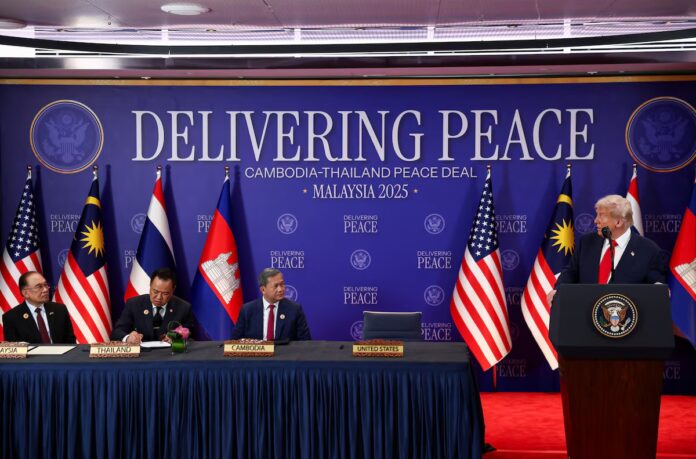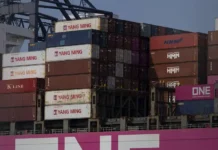
The United States signed a series of trade and critical minerals agreements with four Southeast Asian partners on Sunday, as President Donald Trump sought to strengthen supply chains and reduce reliance on China amid escalating curbs on rare earth exports from Beijing.
During his visit to Kuala Lumpur for the ASEAN summit, Trump concluded reciprocal trade deals with Malaysia and Cambodia, and signed a framework trade pact with Thailand aimed at addressing tariff and non-tariff barriers.
A similar agreement was also reached with Vietnam. Under the new arrangements, Washington will maintain a 19% tariff on exports from Malaysia, Cambodia, and Thailand, reduced to zero for certain goods, while Vietnam’s exports will continue to face a 20% rate.
Vietnam, which posted a $123 billion trade surplus with the U.S. last year, pledged to expand purchases of American products to help narrow the gap.
In parallel, Trump inked two critical minerals cooperation deals with Malaysia and Thailand, reflecting U.S. efforts to secure alternative sources for rare earths used in semiconductors, electric vehicles, and defense technologies.
The move follows reports that China is deepening its involvement in Malaysia’s rare earth processing sector through potential partnerships with state-linked investors.
Malaysia, which holds an estimated 16.1 million tonnes of rare earth deposits, agreed not to ban or impose export quotas on shipments of critical minerals or rare earth elements to the U.S. The joint statement did not clarify whether the pledge covered raw or processed materials.
The trade deals also include commitments to enhance digital trade, services, and investment cooperation, and to uphold labour and environmental standards.
Thailand, Malaysia, and Vietnam will now recognize U.S. vehicle safety and emissions standards, while Malaysia pledged to streamline halal certification processes for U.S. cosmetics and pharmaceuticals.
Malaysian Trade Minister Tengku Zafrul Aziz said the country secured tariff exemptions for aerospace, pharmaceuticals, and key commodities such as palm oil, cacao, and rubber.
Thailand, meanwhile, will remove tariffs on roughly 99% of goods and ease foreign investment restrictions in its telecommunications sector.
Bangkok also announced major commercial deals, including annual purchases of U.S. agricultural products worth $2.6 billion, 80 aircraft valued at $18.8 billion, and energy imports totaling $5.4 billion.
The agreements come after Trump facilitated a new ceasefire between Thailand and Cambodia following recent border clashes, underscoring Washington’s broader push to deepen economic and security engagement across Southeast Asia.
Source: Reuters
Written By Rodney Mbua


















